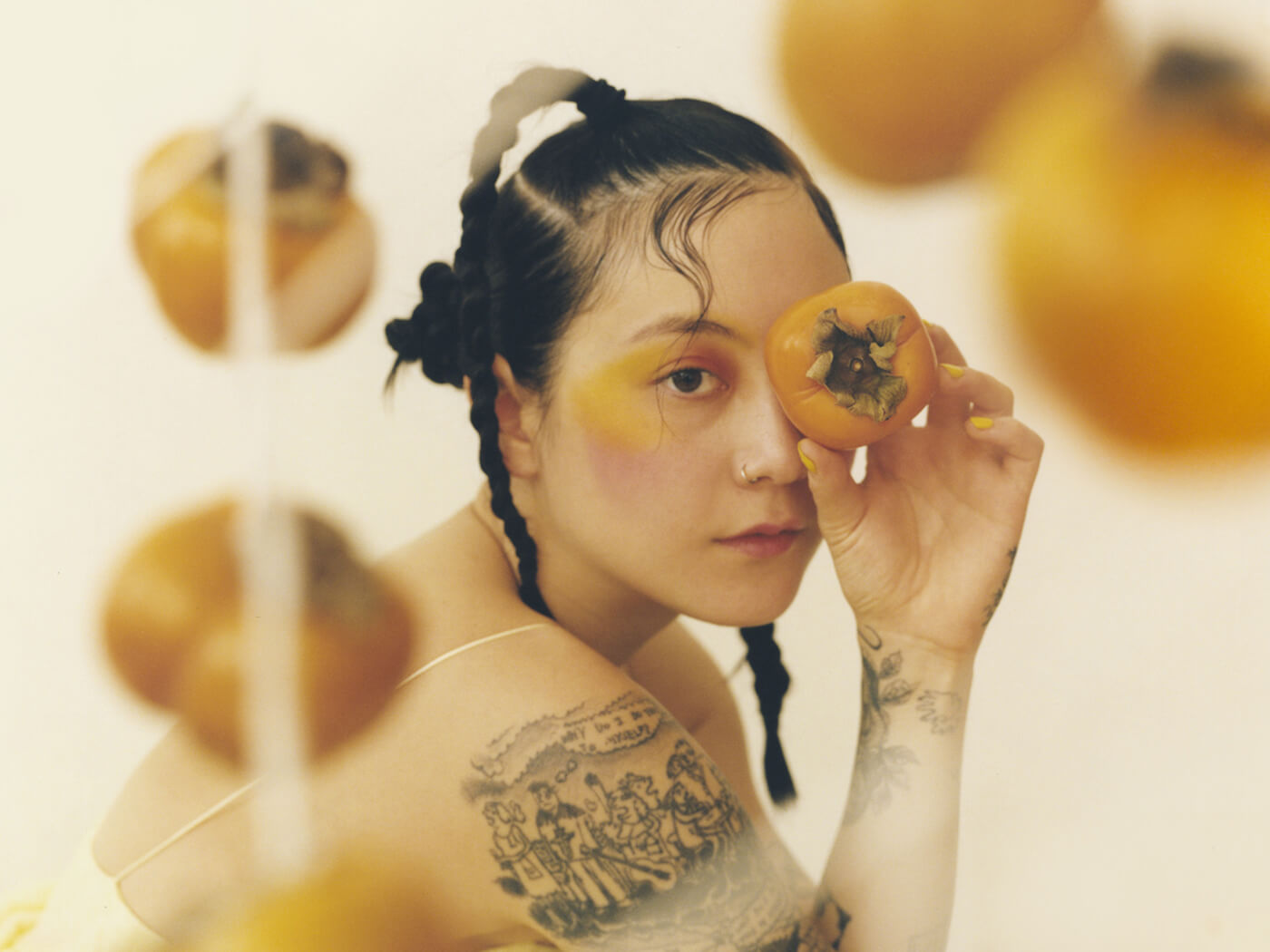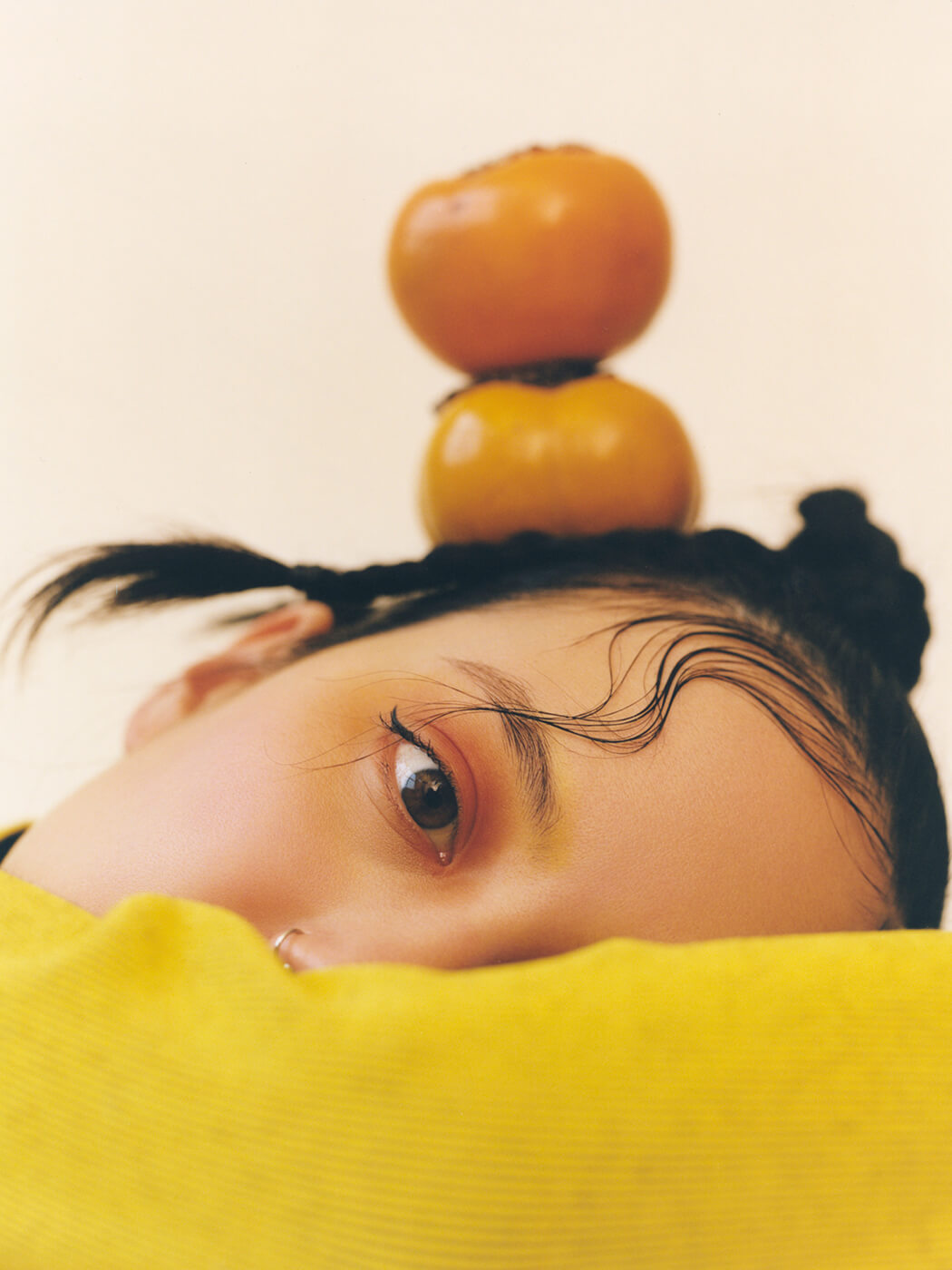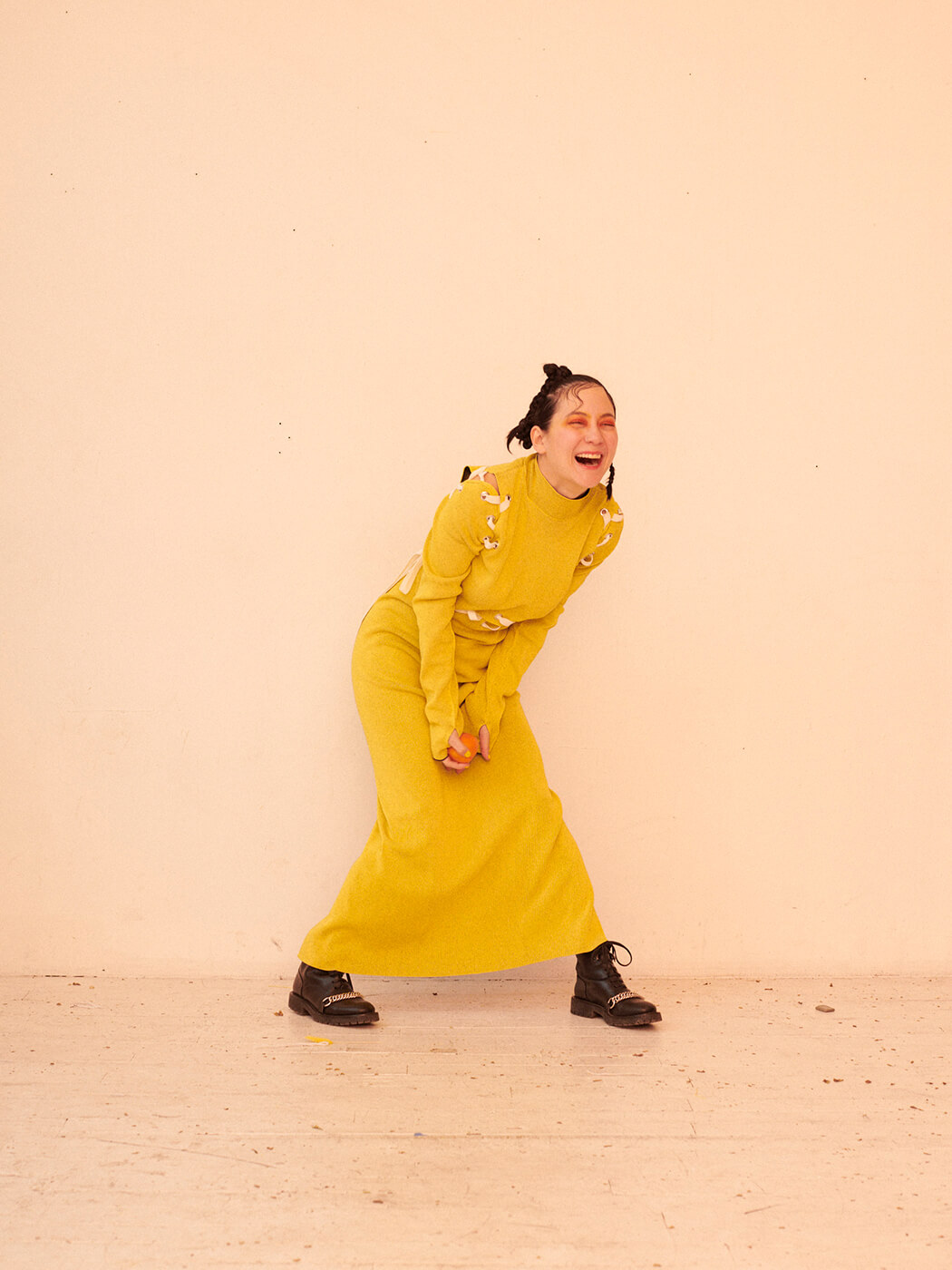“I wanted to create more situations where I felt uncomfortable”: Japanese Breakfast on the communal spirit behind her new album
Michelle Zauner on how a pandemic-enforced delay has enabled her to appreciate her new record, Jubilee more than she might have otherwise, and why she feels ‘cooler’ playing ‘intimidating’ Jazzmasters.

Image: Press
It’s not enough for Michelle Zauner to simply draw a line under a project anymore. “This is a new, devastating development,” she says with a laugh, backed in a Zoom window by a spray of framed pictures against the yellow walls of her Brooklyn apartment. “The novelty of finishing something has worn off, so when I make an album now I’m very uncertain about it.”
But Jubilee, the third record Zauner has released under the moniker Japanese Breakfast, is not an uncertain piece of work. It’s expressive, adventurous, and littered with luminous indie-pop hooks. It’s been by her side since 2019, when it was wrapped before being pushed back as things shifted a few degrees into our current almost existence. “Maybe this sounds awful, but I have lost the perspective to enjoy my work until later on,” she observes.
“I was listening to the record on a plane almost a year after it was finished, and I had a really moving experience where I could appreciate it so much more. My co-producer, Craig Hendrix, felt that same way. We were ecstatic when we finished Soft Sounds From Another Planet. With this record there was this sad feeling. I think it’s just delayed now. I know I can finish a record. I just won’t know if it’s good until I have that perspective. Time has made me feel like it’s good, that it’s timeless.”
Turning a corner
The four years since Soft Sounds… spread out like an ocean behind Jubilee. The records are both unmistakably Zauner’s – dotted with razorwire lyrics and tactile production that’s part Wall of Sound, part indie-rock wig out – but they approach things from totally different headspaces. The first couple of Japanese Breakfast LPs, beginning with 2016’s sleeper hit Psychopomp, examined Zauner’s grief following the loss of her mother to cancer, a process that continued through writing her recent New York Times bestselling memoir Crying in H Mart.
Jubilee, quite deliberately, feels like arriving around a corner to find something you didn’t know you were looking for: it’s about joy, euphoria, feeling. That’s reflected back by songs that pop and whirr thanks to brass, strings and, on the superb lead single Be Sweet, Nile Rodgers-style stabs of funk guitar.
“We were chasing an ambitious, confident, vibrant palette,” Zauner admits. “I felt more confident about arranging strings and horns. Working with those instruments on a smaller capacity on Soft Sounds… made us feel more confident about utilising them more. I think the compositions naturally were a little more fun and joyous. It felt like it was set out to be that way.”

Bring your friends
Jubilee is bound together by rich synthetic textures, spinning out from Zauner’s desire to press reset by writing more on piano. “I feel like I had plateaued a bit, musically,” she says. “It’s easy to get lazy. You start relying on the same tricks, the same chord shapes, the same structures, even keys.”
As a result the record utilises guitars more as a series of accents, whether that’s the textured acoustic classicism of Kokomo, IN or the ringing clean lines that underpin the heartbreaking In Hell, a missive from the recent past that lands a heavy blow. Zauner allows the closer, Posing for Cars, to sprawl across six minutes as a knotty solo takes hold like Dave Gilmour opening the taps at a house show.
The bench is also deeper here. Along with Hendrix, Zauner has ceded the floor to a larger number of collaborators than she’d have countenanced in the past. Be Sweet was co-written with Jack Tatum of Wild Nothing, for example, while Philly indie-rock weirdo Alex G co-produced the smirking capitalist takedown/character study Savage Good Boy. “I wanted to create more situations where I felt uncomfortable, where I could steal knowledge from other people,” Zauner says. “Let’s see what gear and plugins Jack Tatum from Wild Nothing uses, or Ryan Galloway from Crying.
“Psychopomp was about complete necessity – literally anyone I knew who played an instrument got on the record. Soft Sounds…, I had such a fear of the sophomore slump that I wanted it to be the most insular process. It was just me and Craig in his studio. For Jubilee it would have been so easy to just go back. I wanted to push myself to do more before we got together, and explore working with other people. I also felt I had less to prove. Before I would have been afraid of having a co-writer on a record because, especially being a woman in music, it was really important to me that everyone know I produce, arrange, and write all the songs. Now, I don’t need to prove that to anyone.”
Chorus lines
These days Zauner is at home with a Jazzmaster in hand and a JC-120 behind her, having traded out the Telecasters that she turned to earlier in her career. “Going on tour with Slowdive made me really into the JC-120,” she observes. “It’s sturdy, it sounds great. I love the way that Telecasters look, but I find that the kind of stuff I’ve always played is higher on the neck and it gets a little too high end for me. The Jazzmaster feels like a more grounded sound. I was kind of intimidated for a while because they’re bigger, but I also feel cooler being a small woman playing one.”
Born in Seoul to a Korean mother and a white American father, Zauner grew up in the hippyish confines of Eugene, Oregon. Her first guitar walked into her life as indie-rock in the Pacific Northwest was enjoying a febrile period that squared creativity with clout. “I was 14 or 15 and I feel like around that age I had started figuring out what I was interested in musically,” she recalls.
“I didn’t have any siblings, my parents didn’t really listen to music, so I definitely got into music based on my environment. I was listening to bands like Built to Spill, Modest Mouse, Elliott Smith, Death Cab for Cutie, those kinds of dynamic indie-rock bands. I went to these shows and wanted to be as close to it as possible. I wanted to play the guitar. My mum had paid for piano lessons since I was five years old and I never got very good at it. She was like, ‘Why am I going to waste thousands of dollars for you to ignore another thing?’ But eventually she relented and bought me a Yamaha acoustic from Costco. It came in a box. The action was so high. It was impossible to play for a long time.”

Chord theory
Still, things quickly fell into place. As soon as she had a few chords in the bank the songs started coming. Zauner went from wanting to do it to doing it, moving from open mics to playing around Eugene under the name Little Girl, Big Spoon. “I learned G, C, and D, and that was it,” she says. “I was away. I wrote like 10 songs on G, C, and D. I think I always viewed the guitar as a vehicle for songwriting. I didn’t even care for a long time about being a great guitar player, I just wanted to write songs.”
Zauner’s next stop was Philadelphia, where she followed a spell in college at Bryn Mawr with a stint in the scrappy indie-punk group Little Big League. Their two LPs were released at a time when the city’s rock scene could have lasted deep into a contest with almost any other spot on Earth. “My two favourite bands out of Philly are Alex G and Spirit of the Beehive,” she says.
“I definitely think being around wildly creative people, who just make really weird music, pushed me to find that in myself. I think that I try to do something a little more hi-fi at this point, but I am really inspired by those bands and how they fuck with their music. I think there’s a real DIY spirit that I came up with. I understand the power of not recording in a super high budget studio because it makes you experiment. I think that Philadelphia gave me the courage to experiment more.”
That impulse to push at the boundaries of her sound is all over Jubilee, particularly after Zauner began to view the studio as a creative space as well as a practical one. She points to reimagining the scratchy punk of Boyish, a holdover from her Little Big League days, as a sweeping ballad on Soft Sounds… as a lightbulb moment. “When I was in Little Big League I never thought of the studio that way,” she says. “We were so focused on getting a live sound. We made these songs together as a band and we were trying to represent them in a live environment. Boyish is a perfect example of that. I realised that if you got it in composition, you could lose it in arrangement and you could lose it in production.
“I think with the Little Big League version we lost it in the arrangement and we lost it even more in the production. I feel like I did my part compositionally on that song, and then it never got its due. Finding it and seeing the power that arrangement and production had, that’s what I discovered with this band and because of that I’m pretty precious about that process. One great thing about Craig and I is that we go in on every song in a different way. Everything serves the song. I think that our albums have a scrapbook quality.”
Japanese Breakfast’s Jubilee is out now through Dead Oceans.
